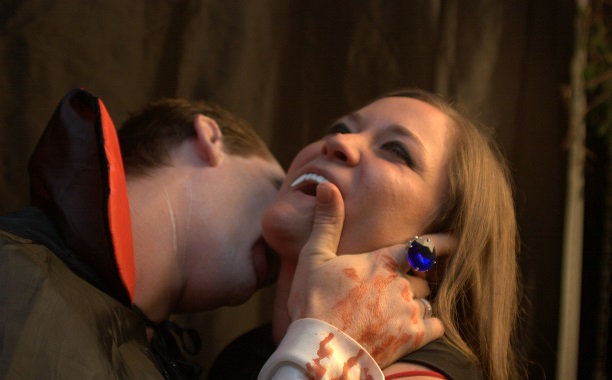A new study suggests that real-life vampires exist, but they are reluctant to “come out of the coffin” to social workers and other medical professionals.
D.J. Williams, who has studied self-identified vampires for nearly ten years and serves as the director of social work at Idaho State University, states that people who identify as vampires are afraid to disclose their lifestyle to social workers and doctors for fear of being ridiculed, met with disgust, or possible diagnosis of mental illness, reports the New York Post.
Williams’ research, which was published in Critical Social Work, suggest that “authentic” vampires as opposed to “lifestyle” vampires – goth dressing folks with fake fangs – run the risk of being stereotyped by clinicians whose fields frown on biases.
Williams’ research suggests that vampires are ordinary people, who come from all professions and walks of life – including lawyers and doctors. “They are successful, ordinary people,” he said.
Fox News reports that Williams and another researcher wrote the paper based on the responses of 11 “vampires” who gain permission from consenting adults before ingesting blood. Typically, the vampires make a small incision in the chest area of the willing “victims” so they can drink the blood for energy. Without blood, the vampires are tired.
Williams believes that the vampire community is “conscientious and ethical,” and that vampires are “born that way; they don’t choose this.”
The real vampire community seems to be a conscientious and ethical one (…) Most vampires believe they were born that way; they don’t choose this.
The challenge, Williams said, is for the vampires to find non-judgmental clinicians to whom they can disclose their lifestyles. He added that the global vampire population is in the thousands.
It’s not only vampires who struggle within the healthcare system. Many people who suffer from mental illness find it difficult to reach out for help, or to get the counseling they need. One woman in particular spoke out after she lost her mentally ill son, calling the “system broken” and stating that it failed her son.
























